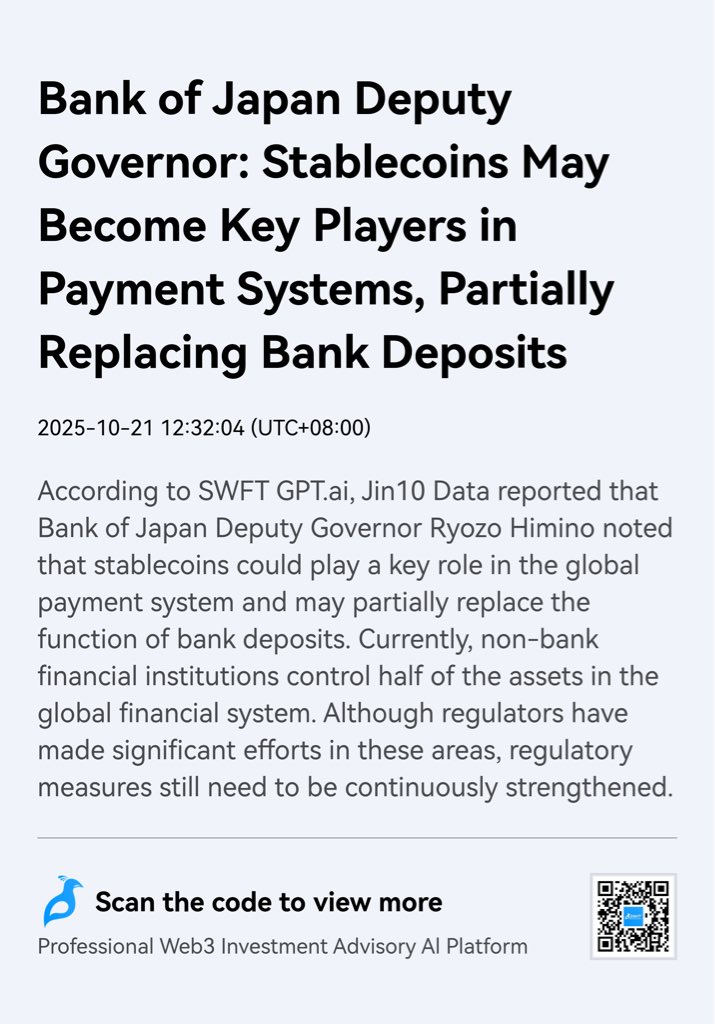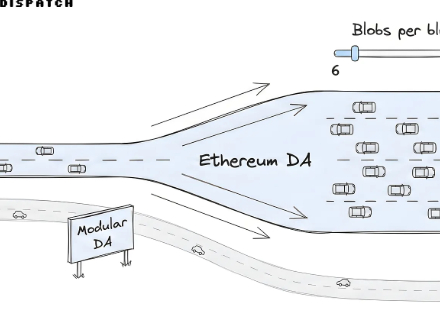BOJ Deputy Governor Calls for Regulatory Overhaul as Stablecoins Reshape Global Finance
Quick Breakdown
- Bank of Japan’s Ryozo Himino calls for regulatory reforms to address rising stablecoin adoption and non-bank financial growth.
- Warns that half of global financial assets now lie outside Basel 3 oversight, urging modernization of prudential standards.
- Says stablecoins could replace traditional bank deposits, reshaping global payments and financial stability frameworks.
Bank of Japan Deputy Governor Ryozo Himino has urged global regulators to modernize financial supervision frameworks to reflect the rapid rise of non-bank institutions and the growing influence of stablecoins in the global payment ecosystem. Speaking at the 2025 GZERO Summit in Tokyo, Himino emphasized that traditional regulatory systems built around banks are increasingly outdated in today’s evolving financial landscape.
 BOJ Deputy Governor Calls for Regulatory Overhaul. Source: Swift
BOJ Deputy Governor Calls for Regulatory Overhaul. Source: Swift
Stablecoins emerging as key players in global payments
Himino noted that half of the world’s financial assets are now held by non-bank institutions — entities largely outside the purview of Basel III regulations. The G20’s repeated extensions of Basel III deadlines, he said, have failed to keep pace with market transformation. Stablecoins, in particular, are emerging as a major force that could partially replace traditional bank deposits and reshape how value moves across borders.
“Regulators are doing a lot in these spheres, but much more needs to be done,” Himino stated. “We must continue modernizing international prudential standards to keep up with new and emerging realities.”
He warned that without a coordinated framework, global finance could face greater fragmentation as decentralized assets and corporate-backed digital currencies continue to expand. Himino’s remarks come as Japan and other major economies explore regulatory clarity for stablecoins following growing institutional adoption and cross-border usage.
Call for unified global standards
Himino also pointed out that U.S. banks with their dominant dollar-based deposit systems hold a significant advantage in shaping future global standards. He urged major economies to collaborate on unified regulations that balance innovation with financial stability.
“There’s no fixed formula to solve all problems,” he said. “Today, we must be agile in seizing opportunities and tailoring our approach to new financial realities.”
In parallel, Japan’s securities regulator is preparing new rules to criminalize insider trading in cryptocurrency markets, aiming to align digital asset regulation with traditional securities laws. The move signals Japan’s intent to enforce market integrity as it embraces blockchain-driven financial products.
Disclaimer: The content of this article solely reflects the author's opinion and does not represent the platform in any capacity. This article is not intended to serve as a reference for making investment decisions.
You may also like
Ethereum's "DA Dawn": How the Fusaka Upgrade Could Make Celestia and Avail Seem "Redundant"?
The article discusses the concept of modular blockchains and Ethereum's performance improvement through the Fusaka upgrade. It analyzes the challenges faced by DA layers such as Celestia and highlights Ethereum's advantages. The summary was generated by Mars AI. The accuracy and completeness of this summary are still being iteratively updated.

Rising Bitcoin ‘liveliness’ indicator suggests bull market may continue: analysts

Poland’s Crypto Bill Stalls as Parliament Upholds Presidential Veto

Pakistan Prepares to Launch its First Stablecoin to Support its Digital Transition

